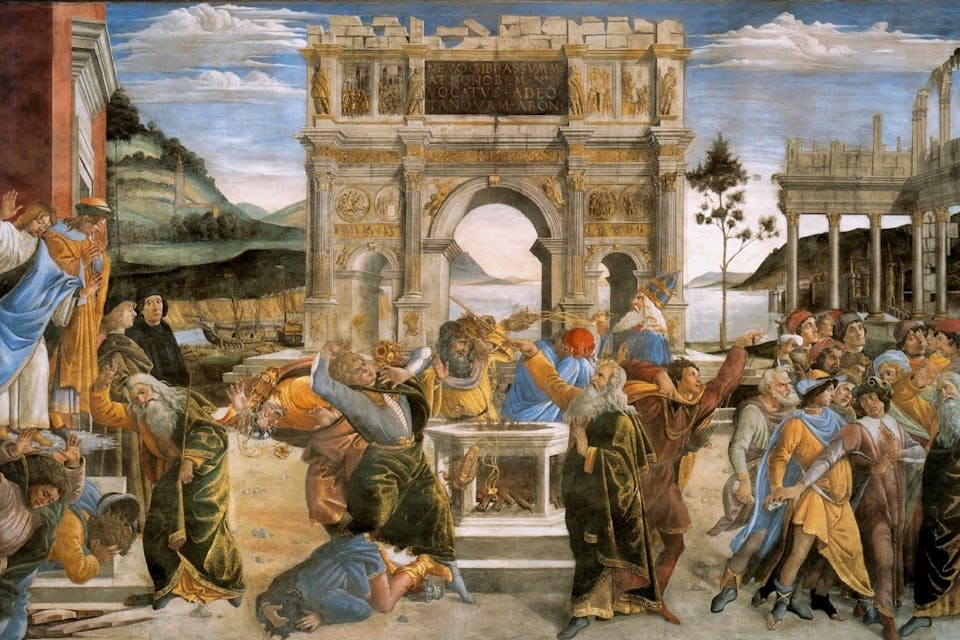
June 22, 2017
The Bible’s Coalition of Complainers
Koraḥ's failed rebellion against the leadership of Moses shows that a culture based on grievance cannot last.
Several weeks ago in Mosaic, David Wolpe aptly dubbed the book of Numbers “the great book of grievance.” He had in mind the repeated episodes of anxious Israelite muttering and murmuring that mar—and delay by a generation—what should have been an exultant march from slavery to freedom following the miraculous exodus from Egypt. Now, in this week’s Torah reading of Koraḥ (Numbers 16-18), the litany of complaint reaches a dramatic crescendo as the title character leads several factions of disgruntled Israelites in an attempt to overthrow the leadership of Moses and his brother Aaron. The rebellion is crushed in the most spectacular and devastating manner when the earth splits open and swallows Koraḥ and his followers.
Of all the grumblings voiced in the wilderness, Koraḥ’s appears, at least on the surface, to display the greatest integrity: Moses, he claims, has engaged in an act of blatant nepotism by appointing his brother Aaron and his descendants to serve as priests in the Tabernacle. “You have gone too far!” his party cries (16:3), “For all the community are holy, all of them, and the Lord is in their midst. Why then do you raise yourselves above the Lord’s congregation?”
Koraḥ’s accusation has been the subject of endless Jewish commentary and speculation. If earlier Israelite complaints seemed primarily self-serving and, in context, petty—the food was no good, the inhabitants of the promised land were too mighty to vanquish, and so forth—the revolt of Koraḥ and his followers appears to be well-founded on a matter of principle, and a noble principle at that: namely, equality. The giving of the Torah at Sinai had been a marvelously democratic experience, with every member of the Jewish people witnessing the divine revelation. But the long trek thereafter, chronicled in the first fifteen chapters of Numbers, has instead been a story of top-down structure and hierarchy.